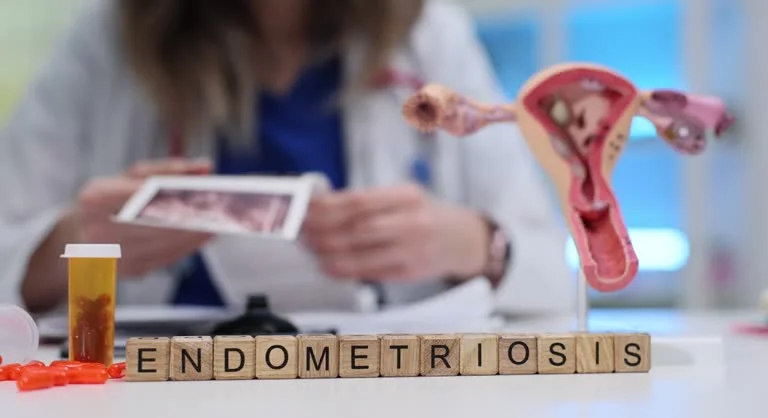Silent endometriosis presents without noticeable symptoms and may contribute to unexplained infertility. Endometriosis is a reproductive health condition that affects many women, though some cases remain asymptomatic for years. The condition occurs when endometrial cells, normally found inside the uterus, begin to grow in other areas of the body. Here are a few ways to find support for silent endometriosis:
Get a Comprehensive Endometriosis Evaluation
Understanding the medical cause behind symptoms can help individuals connect with specialists, advocacy groups, and others facing similar challenges. Traditional endometriosis may cause symptoms such as unexplained pelvic or abdominal pain, recurrent bladder or bowel pain, severe cramps, and painful intercourse. The condition also contributes to nonspecific symptoms like fatigue and bloating. Silent endometriosis doesn’t always have obvious symptoms, making it more difficult to detect using standard fertility evaluations.
Endometriosis can interfere with reproductive health, especially if the abnormal tissue affects the fallopian tubes. The growths may block the pathway for sperm and egg to meet, disrupting fertilization. They can also surround the ovaries, interfere with ovulation, or inflame the uterine lining, making implantation difficult. If an individual is unable to conceive naturally and there’s no clear medical explanation, a fertility specialist may recommend testing for silent endometriosis. Scheduling a comprehensive evaluation is a key step in finding answers and support for those experiencing unexplained infertility.
One evaluation method is the BCL6 test, which checks for inflammation in the uterine lining by measuring the level of BCL6 protein. Elevated BCL6 levels are associated with uterine inflammation and may indicate endometriosis. If the test result is positive, the doctor can recommend further diagnostic steps, such as imaging tests or biopsies. A comprehensive evaluation helps the fertility specialist determine whether endometriosis is contributing to the individual’s infertility.
Don’t stop here—take a look at what else we’ve got for you!
Learn About Suitable Endometriosis Treatments
Early confirmation of endometriosis allows a fertility specialist to address the condition before it causes lasting damage. The appropriate treatment depends on how endometriosis affects the patient’s fertility and overall health. If the individual is asymptomatic and the growths aren’t interfering with their life, the specialist may recommend monitoring the condition rather than providing immediate treatment. Learning about treatment options enables individuals to make informed decisions and be more in control of their reproductive health.
Tracking endometriosis allows doctors to determine when to intervene and prevent future complications. If a patient develops pain or other symptoms, or if they’re planning to conceive, their doctor can recommend a range of treatment options to support their goals. These include medication or surgery. Endometriosis treatments include:
- Pain Relievers: Fertility doctors may prescribe over-the-counter pain relievers to manage mild pelvic discomfort and other symptoms.
- Hormonal Birth Control: Birth control pills and intrauterine devices (IUDs) can suppress menstruation, reducing the chance of abnormal endometrial tissue growth.
- GnRH Agonists: Gonadotropin-releasing hormone (GnRH) agonists suppress ovulation hormones, inducing temporary menopause and halting the growth of endometrial tissue while on the medication.
- Laparoscopic Surgery: This minimally invasive procedure removes abnormal endometrial growths blocking the fallopian tubes or surrounding the ovaries. It also removes scar tissue and can improve the chances of natural conception.
Pursue Alternative Fertility Treatments
Endometriosis may lead to infertility, repeated miscarriages, and unsuccessful in vitro fertilization (IVF) attempts. Treatment options support individuals with their fertility goals. Treatments such as hormonal birth control and GnRH agonists offer temporary relief from the symptoms. They have the potential to provide a window for natural conception immediately after stopping the medication. Surgical removal of abnormal endometrial cells can also improve the chances of natural conception.
Endometrial cells grow and shed every month, so they may return even after medical, hormonal, and surgical treatments. If an individual is unable to conceive naturally, fertility specialists can recommend assisted reproductive technologies (ARTs). IVF is a common ART and involves fertilizing an egg outside the body, then implanting the embryo into the uterus. If endometriosis has damaged a patient’s fallopian tubes, IVF enables them to bypass natural fertilization.
Fertility specialists also offer donor sperm or eggs in cases of male factor infertility or diminished egg quality. If endometriosis has impacted a patient’s egg quality, they can use donor eggs for the IVF cycle. Other ART options include egg freezing, intrauterine insemination (IUI), and surrogacy. These treatments allow individuals to grow their families even when silent endometriosis has caused advanced or irreversible fertility challenges.
Proactively Manage Your Reproductive Health
Silent endometriosis may lead to infertility and other health issues. Regular monitoring, including tests like the BCL6, helps detect early signs of endometriosis, even in the absence of symptoms. Get a BCL6 test today to determine whether endometriosis is affecting your reproductive health.
There’s plenty more where that came from—browse our other helpful content!






